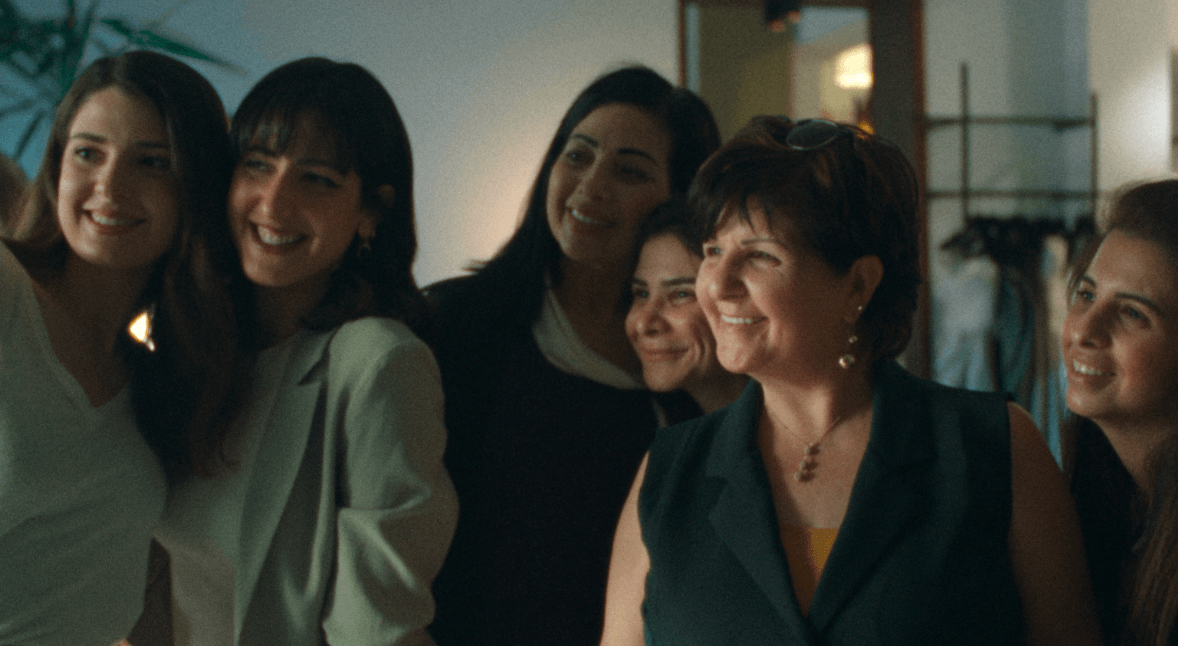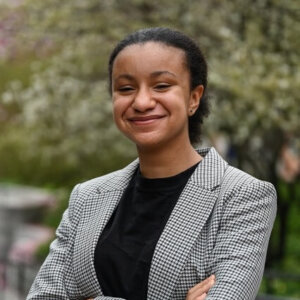Happiness and autonomy prove elusive in a Palestinian director’s moving family drama
Scandar Copti’s ‘Happy Holidays’ focuses on an upper-class family in Haifa

A scene from Scandar Copti’s drama ‘Happy Holidays.’ Courtesy of Indie Sales
Over the course of four acts, Happy Holidays — a new film by Palestinian director Scandar Copti featuring a cast of non-professional actors — shows how race, gender, and other societal norms rob the members of an upper-class Palestinian family living in Haifa of their autonomy.
The first act of the film, which premiered last month at the Venice Film Festival, focuses on Rami, the family’s only son who has gotten his Israeli girlfriend, Shirley, pregnant. He tries to convince her to have an abortion while simultaneously hiding the relationship from everyone but his close friend Walid.
The film’s second part follows the family matriarch Hanan as she plans an expensive wedding for her older daughter Leila, at first unaware that her husband Fouad, has lost much of the family’s money due to financial irresponsibility and impropriety. In the film’s third section, Shirley’s sister, Miri, who is distressed by the pregnancy, frets over the burden of an Israeli woman having an Arab baby. “It’s not a good situation, especially for a child in our country,” she says. In arguably the most disturbing scene, Miri tricks her sister into thinking her baby will be stillborn and having an abortion.
In the final act, Fifi, the family’s younger daughter, faces pressure from her mother to find a husband while trying to conceal the fact that she is not a virgin. When the secret is exposed,the double standard imposed on women’s bodies becomes clear. Walid — who earlier supported Rami through the consequences of unprotected premarital sex — rejects Fifi.

While the Israeli-Palestinian conflict isn’t the focus of most of the film, its impact is constantly felt. Fifi works in a school that appears to primarily serve Israeli children. The teacher asks the kids who protects them, to which they answer “G-d,” “Bibi,” and the “soldiers.” They write letters to members of the IDF as a class activity. The whole time, Fifi sits silently in the background, mirroring the way Palestinian experiences are often left out of narratives about Israel’s protectors.
The issue of war also comes up when Miri’s daughter, Ori, is caught faking depression in order to evade the draft. Whether Ori was motivated by fear for her own life or out of protest of the government is not explained, but it demonstrates another way people are robbed of their autonomy in this society.
At the end of the film, Fifi is the only character who seems to find happiness and she does so by reclaiming control over herself. When Walid apologizes to her and tries to rekindle their relationship, she responds that she can not be the type of girl he wants, nor does she want to be. A bomb siren stops everyone on the street in their tracks – everyone except Fifi, who walks away from Walid through the maze of frozen pedestrians.
Importantly, with this film, Copti has chosen to tell not just Palestinian stories, suggesting that questioning the organization of Israeli society is useful not only for Palestinians. Everyone living in a society with inherent prejudices is affected, whether they are the intended targets of that prejudice or not. In a time when the whole world seems to have its eyes on Israel and Palestine, Happy Holidays paints a moving picture of living as a Palestinian within Israel and prompts us to consider the ways autonomy is compromised on all sides when society is built on division.

















